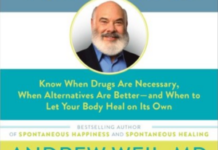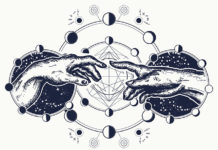Social Environment Moderates the Link Between Family and Psychosis
A study of 4,011 people randomly selected from the population of Izmir, Turkey found that the association between familial liability for severe mental illness and the...
Addressing Non-Adherence to Antipsychotic Medication: A Harm Reduction Approach
Article in the Journal of Psychiatric and Mental Health Nursing
Go to "Addressing Non-Adherence to Antipsychotic Medication: A Harm Reduction Approach" ...
“Terror Management Theory and our Response to the Paris Attacks”
In this short audio clip, psychologist Sheldon Solomon discusses what research on our unconscious fears about death can tell us about terrorism, intolerance, and radicalism. “In the wake of the Paris attacks, we examine the worm that some people think is eating away at our core — our fear of death.”
What a new role for psychiatrists might look like
People have been wondering on this site lately if there is still a role for psychiatrists. The short answer is maybe, if they can...
Dr. Andrew Weil Says We’re Taking Too Many Medicines
From The New York Times: According to Dr. Andrew Weil, who is best known for popularizing the concept of integrative medicine, the problem of overmedication...
Culturally Numb
Experiencing emotional pain is a necessary part of life. Emotional pain often contains valuable lessons to help us on our journeys. We need to make sure we are not numbing our hearts to those that are hurting. We need to de-stigmatize the struggles, joys and pains that come with being human. We need to not just mindlessly pursue happiness - though we might think of that as an inalienable right - and avoid pain. We need to do the only thing that brings true joy: embrace all of life and each other, as we experience together all that makes us human.
Back in the Dark House Again: The Recurrent Nature of Clinical Depression
Eighteen years ago, in the fall of 1996, I plunged into a major depression that almost killed me. Over the next eighteen years I took what I had learned in my healing and put together a mental health recovery program which I taught through my books, support groups and long distance telephone coaching. In the process, I counseled many people who were in the same desperate straights that I had been in. I shared with them what I had learned through my ordeal---that if you set the intention to heal, reach out for support, and use a combination of mutually supportive therapies to treat your symptoms, you will make it through this. And in the cases where people used these strategies and hung there, they eventually were able, like myself, to emerge from the hell of depression.
People With Schizophrenia Diagnoses Actually Do Listen
Contrary to the hypothesis that delusional beliefs in schizophrenia are a persistent general deficit, patients using a well-documented advice-taking task revise their beliefs, taking...
Importance of Physical Symptoms in Mental Health Evals
Researchers at Harvard Medical School highlight the need for mental health clinicians to explore the meaning of physical symptoms and pain
Consciousness is “Not Just Your Brain”
For NPR’s 13.7: Cosmos and Culture blog, philosopher Alva Noë comments on a new Oxford journal, Neuroscience of Consciousness. He is skeptical of the persistent tendency of some neuroscientists “to think of consciousness itself as a neural phenomenon.” His own view, he writes “is that the brain is only part of the story, and that we can only begin to understand how the brain makes us consciousness by realizing that brain functions only in the setting of our bodies and our broader environmental (including our social and cultural) situation.”
Beliefs About Illness and Rehabilitation Predict Outcome in Depression
Researchers in Germany found that in a sample of 98 patients, beliefs about illness and rehabilitation predicted outcome for depression independent of medical or...
Auditory Hallucinations – Expectation, Interpretation, and Emotion
Researchers in Australia, the U.K., the Netherlands, Canada and Belgium reviewed research on auditory hallucinations (AH) in schizophrenia as well other clinical and nonclinical...
This Is Why Your Mental Health Can Get Worse Around Christmas
In this piece for HuffPost UK, Sophie Gallagher highlights some of the common factors that harm people's mental health during the holiday season, including financial stress, loneliness,...
Treated Infections in Childhood Linked with Later Mental Health Service Use
Severe infections requiring hospitalizations increased the risk of hospital contacts due to mental disorders by 84% and the risk of psychotropic medication use by 42%.
Are Depression Guidelines Missing the Evidence for Exercise?
A recent review suggests that depression guidelines do not incorporate evidence for exercise within a stepped-care approach and may be over-reliant on pharmacological treatments.
Oxytocin Improves Emotion Recognition in Schizophrenia
Oxytocin, a natural hormone with a role in social behaviors, has been shown to improve social behaviors in people with autistic spectrum disorders and...
Study Finds Meditation Can Reduce Trauma Symptoms for Inmates
Researchers found that Transcendental Meditation could significantly decrease anxiety and depression, among others symptoms.
That Naughty Little Pill
When patients come to me with complaints of low libido, low or flat mood, weight gain, hair loss, and cloudy thinking, one of my first questions is “Are you on the Pill?”. When they come complaining about premenstrual irritability, insomnia, tearfulness, bloating, and breast tenderness, requesting that I sanction beginning a course of oral contraceptives and perhaps an antidepressant, the one-size-fits-all-cure-all of psychiatrists and gynecologists nationwide, my first comment is “There’s a better way.”
My Story of Recovery: Prayer, Community, and Healing
In his book, Prayer is Good Medicine, physician and researcher Larry Dossey maintains that praying for one's self or others can make a scientifically measurable difference in recovering from illness or trauma. It is one thing to understand such a healing intellectually; it is another to know it from experience. Such an experience came to me in the fall of 1996.
Existential Therapy Assists Patients Withdrawing From Psychiatric Drugs
Confronting existential anxiety through “Basal Exposure Therapy” shows promising results in people withdrawing from psychotropic drugs.
Hallucination in the General Population
Investigating the prevalence and types of hallucination-like experiences (HLEs) in a sample of 437 young adults, researchers in Italy, Belgium, the U.K. and Denmark found...
Changing Mental Health, One Published Case Report At A Time
Lifestyle interventions are the only corrective measures that are sufficiently complex to resolve the stress response factors that drive pathology. This case draws from twenty years of published scientific literature on psychoneuroimmunology and the connection between the gut, immune system, endocrine system, and the brain.
Food Insecurity Linked to Mental Health Globally
Global analysis of 149 countries finds food insecurity is associated with poorer mental health.
I Was God: And You Were A Figment Of My Imagination
The drugs combined with my desire to know how life worked and what made a human broke down all past social conditioning of my individual self. I realized I was God. So was everyone else and I shared with anyone who would listen, but found no one who could understand or navigate the territory. There was little internet to speak of then and no Google to find others who experienced life as I was, so I voyaged on my own as best I could.
Mindfulness As (In)Effective as Antidepressants at Preventing Relapses?
Mindfulness-based cognitive therapy worked as well -- and as poorly -- as antidepressants for preventing relapses in depressed people. Though the mindfulness participants may have been in acute withdrawal.



















